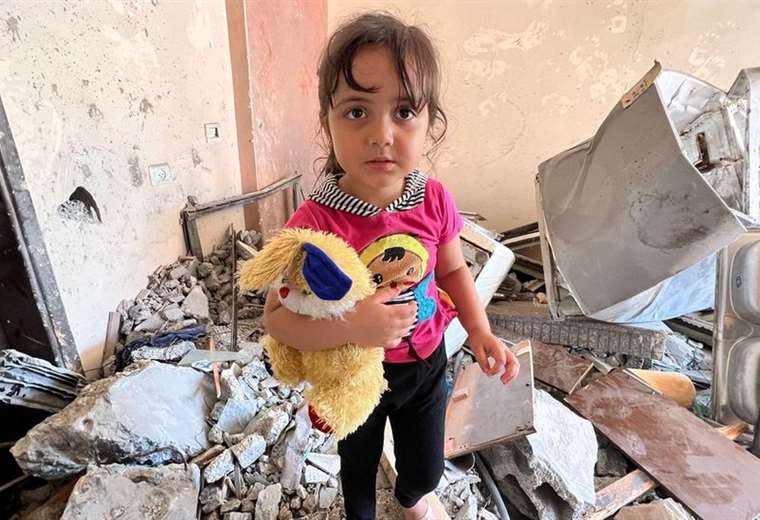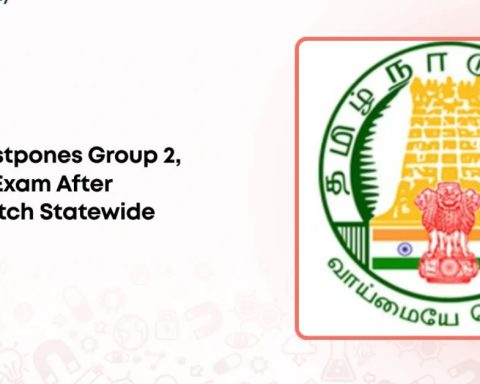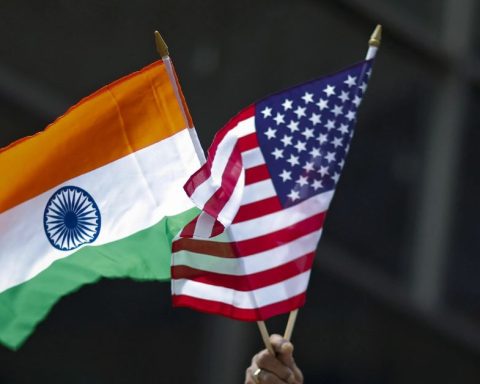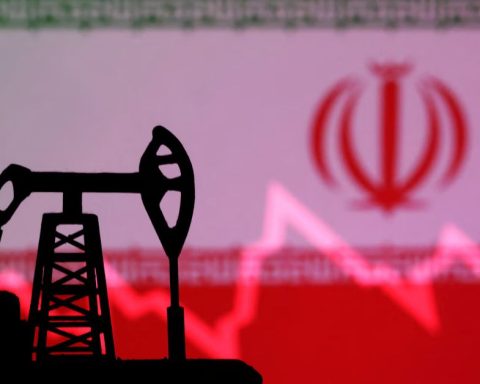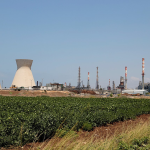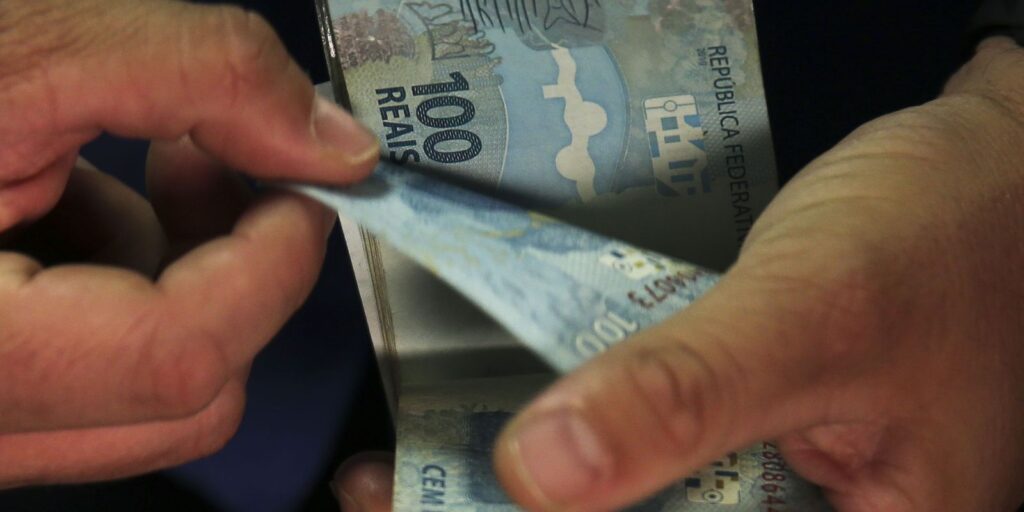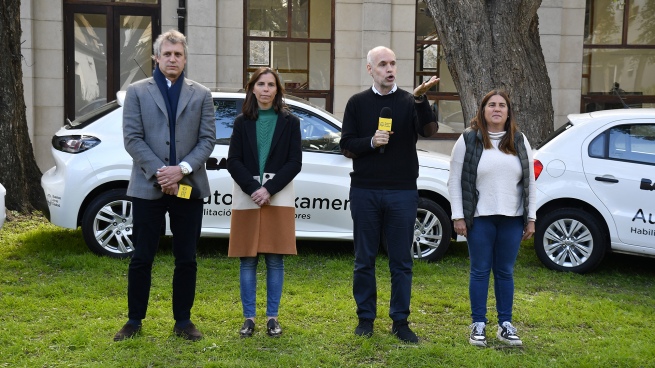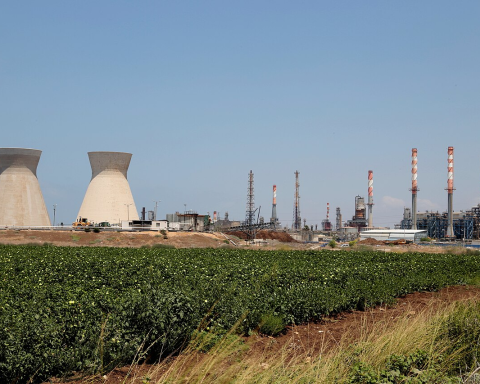August 17, 2022, 7:30 AM
August 17, 2022, 7:30 AM
Hala did not know the danger that was coming when she took her children to the beach. Ella Layan’s nine-year-old daughter had asked her to play in the sand and cool off in the sea.
While the family was traveling at full speed in a tuk-tuk (a motorcycle adapted to carry several passengers and that works as taxis in the Middle East and Asia) they passed through a camp of the Palestinian Islamic Jihad armed group. And at that moment one fell israeli bomb.
A shell fragment pierced Layan’s neck, bleeding him to the ground. Despite being treated in an Israeli hospital for a week, the little girl passed away.
“I’m supposed to be strong because I am the mother of a martyr, but the wars I have seen have had a huge impact on me and my family. all this makes me hate living in GazaHala told the BBC, holding a small stuffed animal that her late daughter received as a gift for performing in a Palestinian dance performance.
The sorry mother rules out that the death of her little girl makes any difference. “Many were killed before her and there has been no change,” she said, adding: “This has never influenced the decision-makers here. It’s like these deaths are normal.”
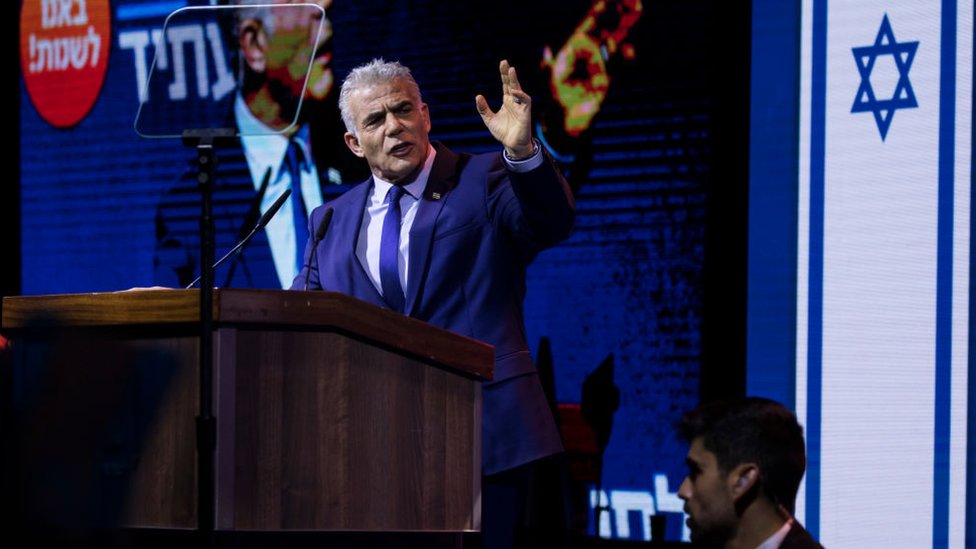
The latest Israeli offensive against positions of Palestinian armed groups in Gaza, registered earlier this month, left 35 civilians dead, according to the authorities. 16 of the deceased were children.
After assuring that measures were taken to protect civilians, Israel’s Prime Minister Yair Lapid apologized for the civilian casualties. “The death of innocent civilians, especially children, is heartbreaking,” he said, but then added: “The State of Israel will not apologize for using force to protect its citizens.”
For its part, the Israeli Armed Forces said they were “devastated“ by the death [de Layan] and that of any civilian”.
amazing reviews
The BBC followed Layan’s funeral procession from the mosque to the cemetery.
Crowds ran, waving militant flags at the sound of gunfire. As his body was lowered to the ground, the men surrounded the grave, shaking off the sand and dirt with their hands and setting up a crude tombstone.
The same small graves also appeared in the refugee camp of wild boar.
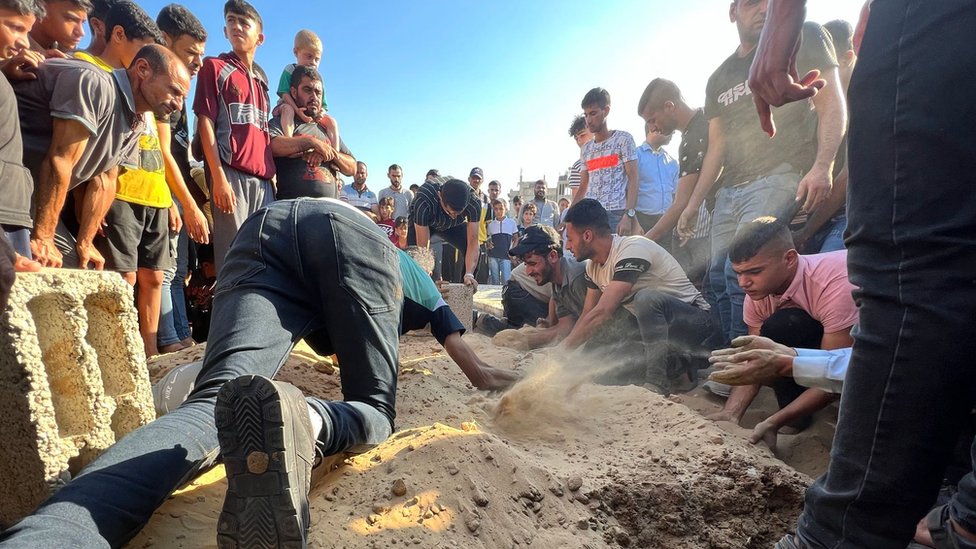
This time, there were five children who were playing in a graveyard when there was an explosion. Israel said it was the result of a Palestinian Islamic Jihad rocket that missed. Militant groups blamed Israel.
Videos of the bodies of the kids They were picked up by their parents and taken to the hospital in the hope that they could somehow be saved.
One of them, Mohammed, was only 17 years old. He wanted to be a police officer, his mother explained.
“It was just children playing. Suddenly, we heard the explosion. The parents ran to the scene and took their dead children,” he said. “Our children got used to killing, dying and bombing. They are different from the rest of the world, who lead a good life and go to parks, not cemeteries, to play.”
In the hours after the explosion at the cemetery, a video began to go viral on TikTok. Khalil Alkahlout had run straight there to check on his own children.
As the bodies piled up around him, he began to scream and beat his chest. A friend next to her started filming. “All this to make Islamic Jihad happy,” Khalil raged. “Why is that? Because they want Bassem Saadi released. So be it.” at the expense of the blood of our little ones“.
Bassem Saadi, is a Palestinian Islamic Jihad leader who was arrested by Israeli troops in the West Bank days earlier. The arrest was the spark for the latest escalation of violence.
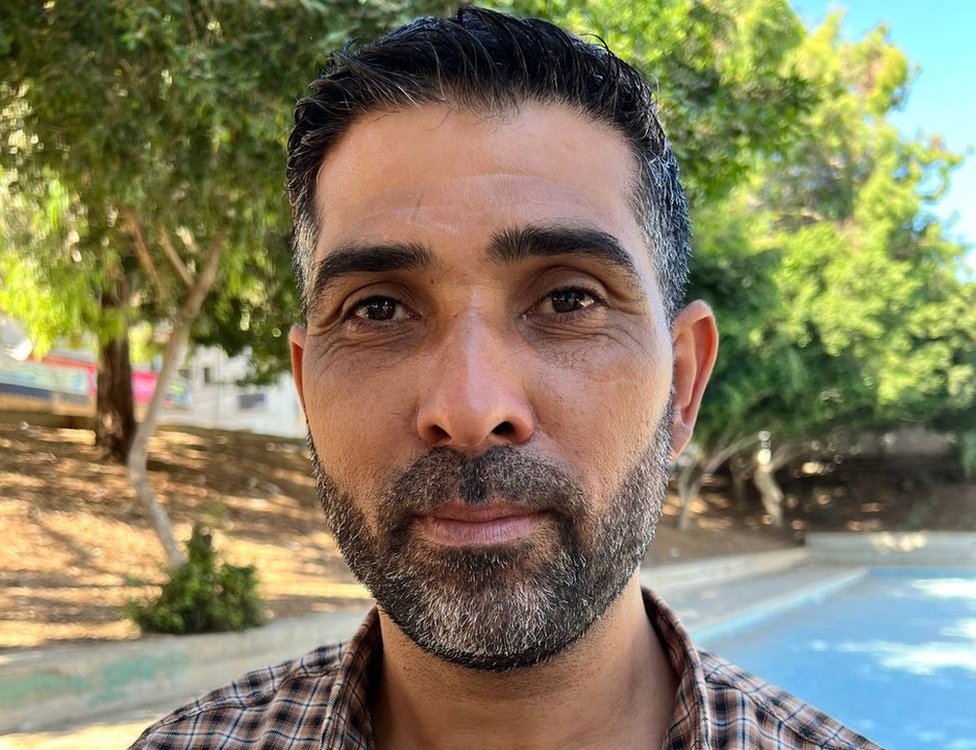
like gunpowder
The likes on Khalil’s video began to grow, reaching thousands.
Public criticism of armed groups by Gazans is extremely rare. “People liked my video because it was perfect,” he explained. “It struck a nerve in people. People don’t want war, they don’t want death, they don’t want children to be killed.”
“When I spoke I said that the timing and the attacks against Israel were not right. Everyone sees me on the streets and tells me that I said what was in their hearts and they have not been able to say. They tell me ‘Well said’ and ‘Well done. ‘”.
Israel began its attack on Gaza on a Friday afternoon, claiming that it had information that Palestinian Islamic Jihad militants were planning new attacks on Israeli civilians. Two of the group’s leaders were killed by Israeli forces.
Over the weekend, around 1,000 Palestinian rockets into Israel. Several Israelis suffered minor injuries.
The impact of each conflict goes beyond deaths and injuries.
A difficult reconstruction
The BBC came through the blown-out wall of Samir’s destroyed kitchen to talk to him. His three-year-old granddaughter, Tuta, pushed her way through the rubble as we talked.
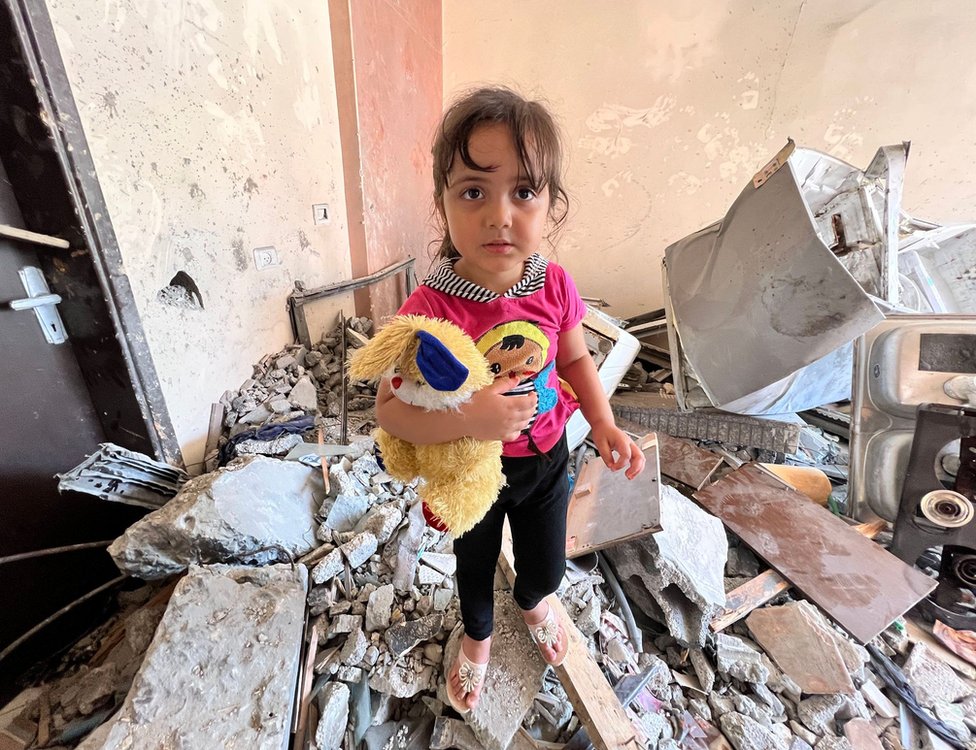
The man recounted that the Israeli army called him and told him to gather his neighbors and leave, because an attack was coming. They walked to the beach and from there they heard the bombs fall and explode. When he returned, much of his house was in ruins.
“We are not well psychologically,” he said. “We want peace, we don’t want wars.”
Samir doesn’t know how he will rebuild his house. It is a pattern reflected throughout Gaza. Building materials are difficult to acquire. Their importation is restricted to prevent militants from using them for their attacks against Israel.
Israel and Egypt have imposed a land and sea blockade of Gaza since the Hamas group seized control of the small territory from the Authority National Palestine in a bloody internal battle in 2007, a year after winning the last general election.
The lockdown has paralyzed the economy, but Israel says it is necessary for security reasons. However, the move assumes that the physical scars of conflict often fail to heal.
The destroyed residential buildings remain there, with only their crooked foundations visible. Other buildings are cleaned but left empty, with little chance of reconstruction. It is yet another reason for Gazans to fear each new escalation of violence.
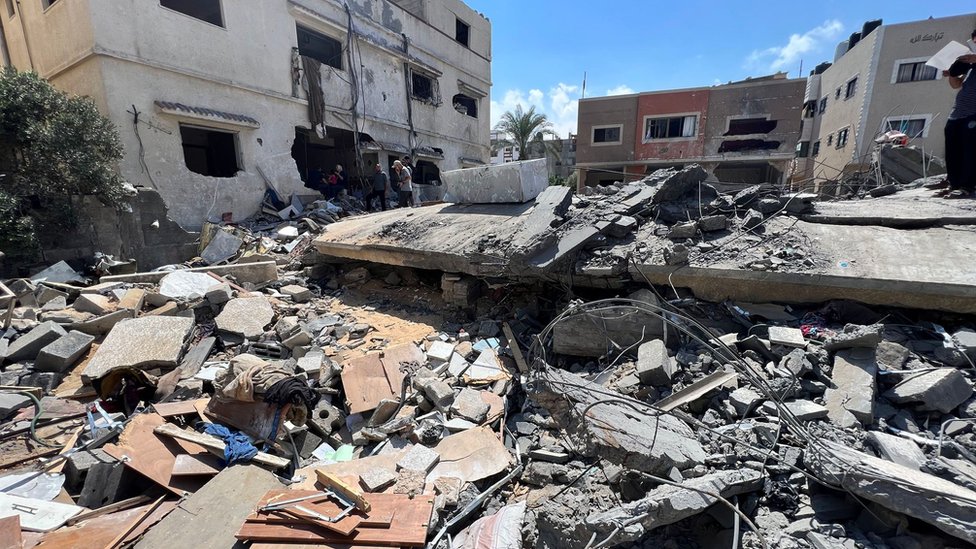
on the sidelines
Hamas runs the Strip. The group is designated a “terrorist organization” by the US, UK and other countries. It says that its goal is to end the Israeli occupation by any means possible, including armed struggle. It has a large stock of weapons, which it uses, firing them primarily at Israel’s border towns.
But this time he did not join the fight, although Israel and most observers say nothing happens. without your consent.
All of the rockets fired from Gaza came from Palestinian Islamic Jihad, a smaller group with less sophisticated equipment. Several of his rockets failedfell on the Palestinian communities themselves and caused deaths and injuries.
The fact that Hamas stayed out of the fighting meant that this latest escalation was kept contained. It lasted three days before a ceasefire was agreed. If it had been united, the impact would have been much greater, which could trigger a new war.
Why didn’t Hamas attack?
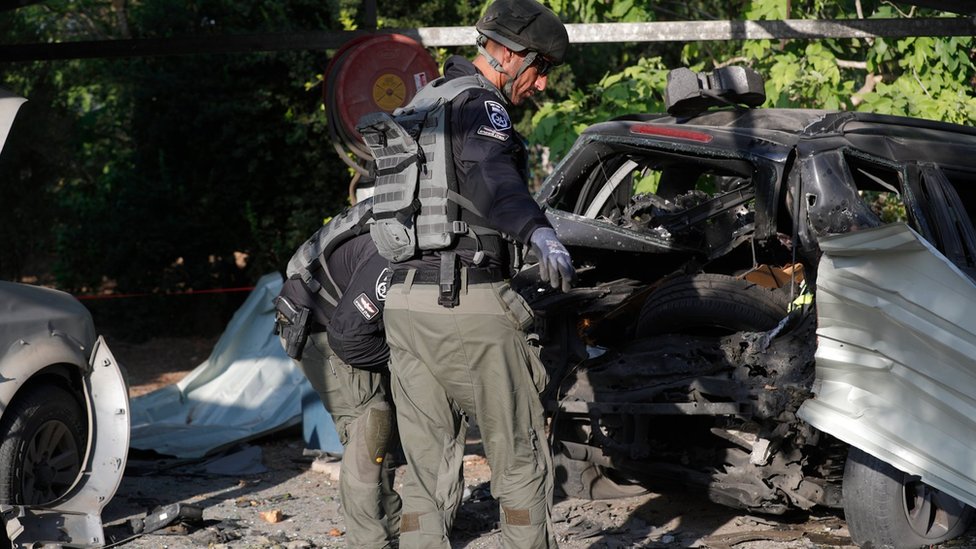
“I think we have to learn some lessons from this confrontation,” said Ghazi Hamad, the group’s spokesman. “We have good cooperation with Islamic Jihad and have had in-depth discussions with them. We have to work together and in this way I think we can reduce the number of mistakes and reduce harm among palestinians“.
Asked about attacks against Israeli civilians carried out by Hamas and the indiscriminate firing of rockets into civilian areas, he replied: “We are not fighting anyone, only the occupation. Israel has the ability to avoid harming civilians, but it is not does and to kill a combatant he does not hesitate to kill all the people around him”.
a peace offering
Following the ceasefire, Lapid said he wanted to “talk directly to the residents of the Gaza Strip and tell them: there is another way.” And he added: “We know how to protect ourselves from anyone who threatens us, but we also know how to provide employment, a livelihood and a decent life to those who want to live by our side in peace.”
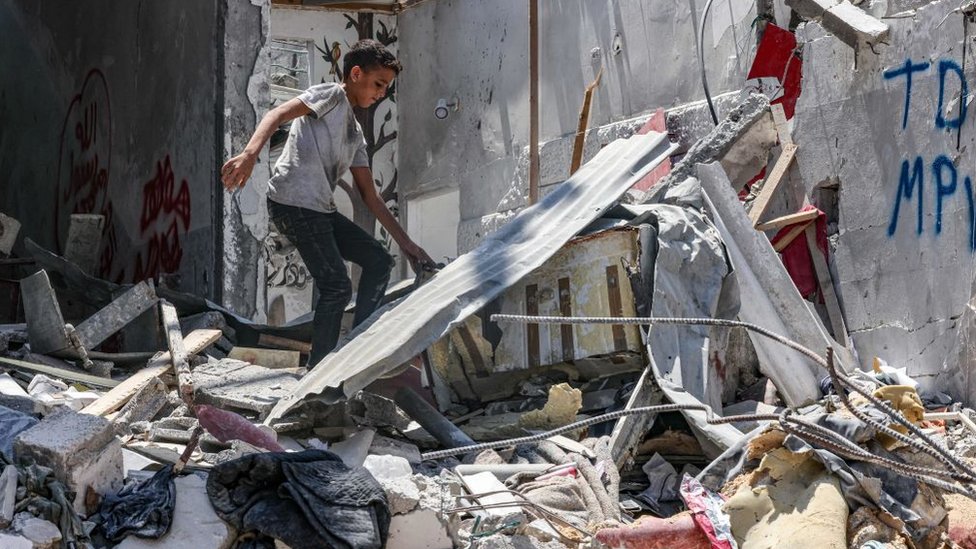
Gaza has one of the youngest populations in the world and most have only known one conflict life.
Besan Abdalsalam is about to graduate as an engineer. Along with many others his age, he heads to the beach at the end of the day. Drinking mango juice as the sun dips over the horizon, the BBC asked How do you imagine your future?
“It’s hard to imagine what our lives would be like if this ended. People would stop going to bed with tears in their eyes for losing a father, mother or sister. Our whole life would change“, said.
“Why can’t we do what people outside of Gaza do? We watch YouTubers and they are happy and do good things. We hope the blockade will be lifted, so we can live like them,” he settled.
Remember that you can receive notifications from BBC World. Download the new version of our app and activate it so you don’t miss out on our best content.
